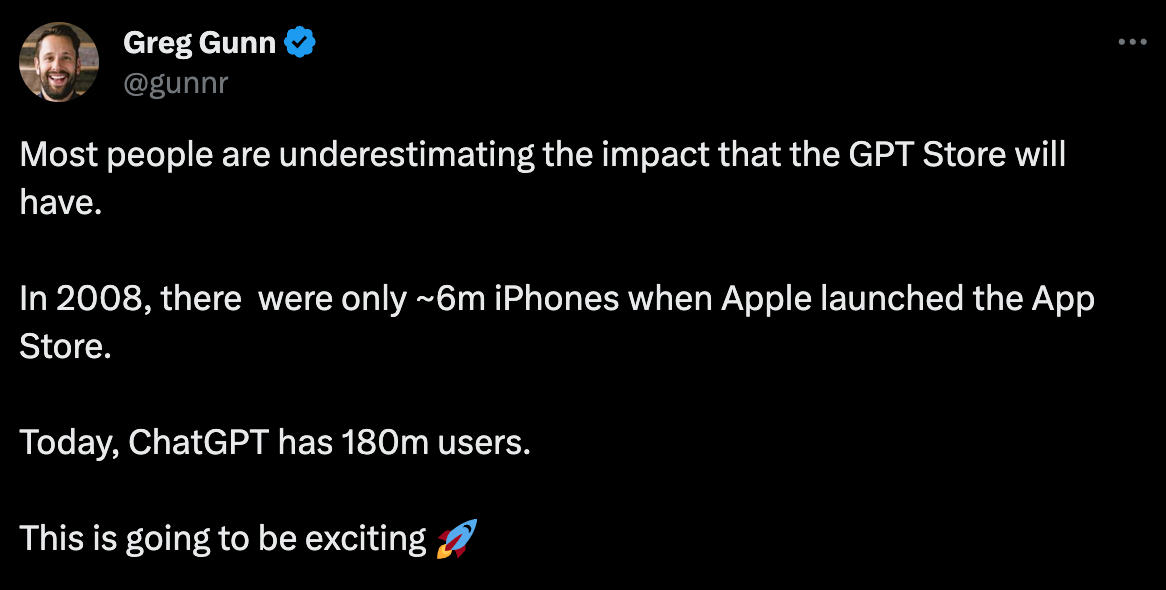Unveiling OpenAI's GPT Store Secrets!
Explore the OpenAI GPT Store's breakthroughs, hidden challenges, and vast opportunities in AI.
Introduction to the GPT Store
OpenAI's recent launch of the GPT Store marks a groundbreaking development in artificial intelligence. This platform, designed specifically for ChatGPT Plus, Enterprise, and Team users, offers a diverse range of customisable AI chatbots. It's seen as a pivotal advancement since the inception of ChatGPT, which aims to make AI interactions straightforward and programming-free for everyday users.
Diverse Offerings in the GPT Store
The GPT Store boasts an array of GPT models, each tailored to different needs. From AI capable of building websites through simple conversation to specialised models for various industries, the store showcases AI's versatility and potential.
Mixed Reactions: Excitement and Concerns
While the launch has been met with enthusiasm for its user-friendly AI access and innovation, it also raises concerns. Intellectual property protection is a significant issue, particularly for simpler GPT models. These models, similar in complexity to JavaScript bookmarklets, face challenges in uniqueness and protectability. Furthermore, the financial model for developers remains undefined, creating uncertainty around potential revenue streams.
Industry Perspectives
"I've watched Google come to life as well as the Apple App Store. Having been a high-level ChatGPT user for the past 13 months, I can confidently say that the Custom GPT Store is the game-changer we've been waiting 17 years for. It's not just an advancement; it's a complete paradigm shift in how we approach advertising." - Phyllis Hong, Priviledged Insights
Top 10 Highlights of the GPT Store
Empowering developers with a platform for showcasing GPT applications
(e.g. Code Tutor GPT by Khan Academy, Canva GPT).Fostering innovation and collaboration in AI
(e.g. Creative Writing Coach GPT by ChatGPT, Math Mentor GPT by ChatGPT, Game Time GPT by ChatGPT, Sticker Whiz GPT by ChatGPT).Introducing diverse AI solutions across industries
(e.g. AllTrails GPT, Tattoo GPT).Simplifying user interactions with various chatbots
(e.g. Consensus GPT, VC Associate GPT).Making GPT creation accessible to non-coders
- Creating a GPT by ChatGPT.Offering a range of applications at launch
(e.g. The Negotiator GPT by ChatGPT).Ensuring ethical AI usage through a review system
- How to report a GPT.Introducing a potential revenue model for developers
- US GPT builders to gain access in Q1 2024, with payments based on user engagement.Democratising AI app creation
(e.g. Logo Creator GPT, Super Describe GPT, VideoGPT).Implementing content moderation to maintain quality
(e.g. Amazing Girlfriends chatbot ban).
Top 10 Challenges of the GPT Store
Functional issues with some GPTs
Ambiguity in the moderation process.
Lack of transparency in GPT banning.
Difficulties in modifying and republishing GPTs.
Limitations in public sharing of GPTs.
User trust concerns due to functionality changes.
Confusion over ban definitions.
Compensation and support issues for moderation workforce.
Absence of initial monetisation options.
Launch delays and leadership changes within OpenAI.
Conclusion
The OpenAI GPT Store is a promising yet challenging development in AI. It opens new avenues for AI applications but also brings to light issues that need addressing, such as intellectual property, developer compensation, and the effectiveness of the GPTs. As the store evolves, it will play a pivotal role in shaping how we interact with AI and the opportunities it creates for developers and users.



